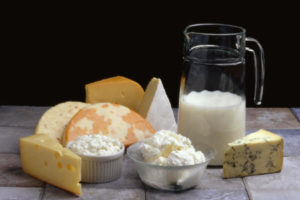A bacterium (Lactococcus lactis) that transforms milk into cheese is being researched by Concordia University who want to “convince” it that its natural vocation can also help to produce biofuels.
Two Concordia University researchers Prof Vincent Martin and his PhD student Andrew Wieczorek, have published a study which demonstrates how structural or scaffolding proteins on the surface of the bacteria can lead to the digestion of plant material into biofuels, namely Biodiesel.
“This is the first study to show how the scaffolding proteins, can be secreted and localized to the cell surface of Lactococcus,” says Dr. Martin. He is also Canada Research Chair in Microbial Genomics and Engineering.
“Exporting these proteins and localizing them to the outside of the cell is a huge milestone. This can enhance the efficiency of any bioprocesses or the breakdown of organic materials.”
The study, published in the journal Microbial Cell Factories, also details how the skeletal proteins of the lactic bacterium bond with multiple compounds.
Their studies will continue into more efficient biofuels production, namely woring out larger and more complex scaffolds that could encourage other bio-processes.


